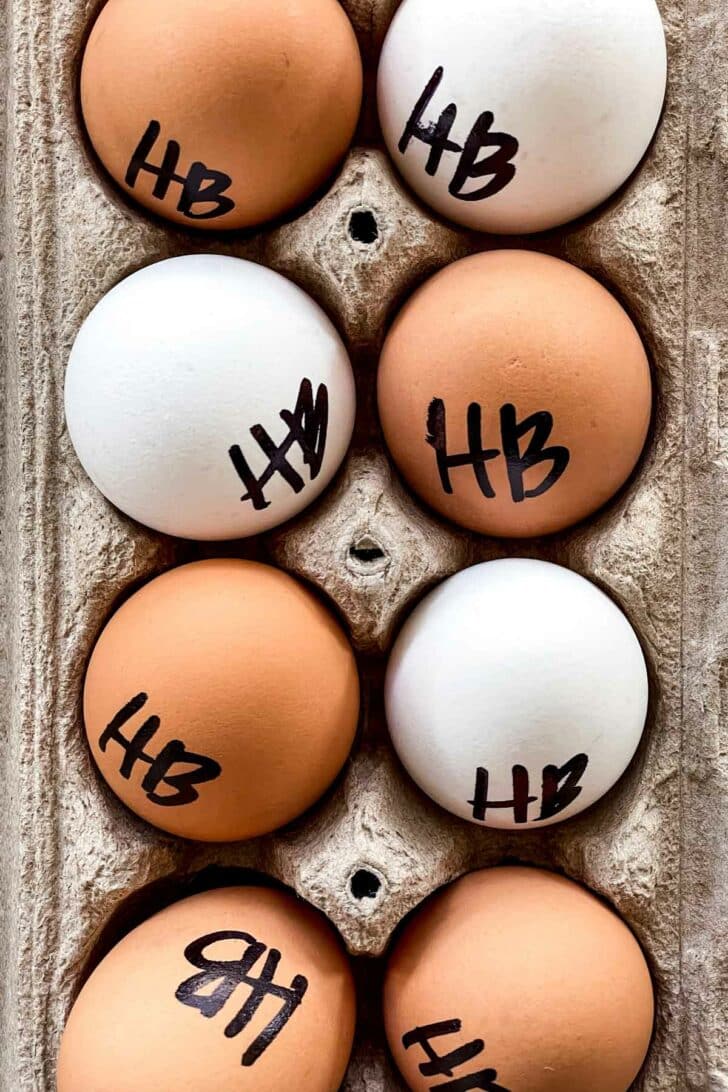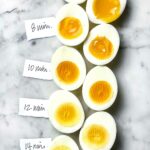From jammy ramen eggs to deviled eggs or Easter eggs, this is how to make perfect hard-boiled eggs with an easy-peel every time.
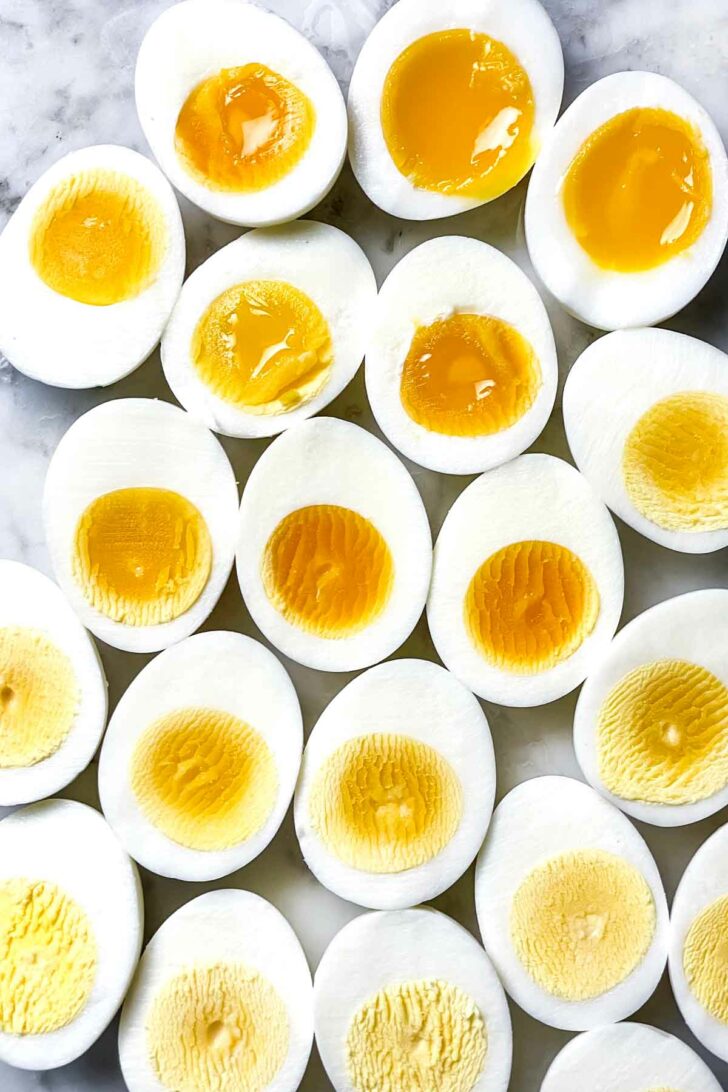
How to Cook Hard-Boiled Eggs
Let’s talk about the incredible egg. Is there any food more versatile? And how about healthy? Science proves eggs are one of the most nutrient-rich foods we can eat. Not only are they an excellent source of protein (especially great for vegetarians), but they’re also full of vitamins, minerals, and healthy fats. One of my favorite ways to cook eggs is a good old-fashioned hard-boiled egg. They’re perfect for breakfasts, grab for a snack, add to salads for a protein boost, or mash in sandwiches.
I spent years trying to crack the code for the perfect hard-boiled egg with a yolk that was soft and creamy and would peel like a dream. Thanks to years of experience and lots of trial and error, now I get a perfect hard-boiled egg where the shells slip right off every time. Are you looking for egg-peeling success too? Okay! Let’s start cracking.
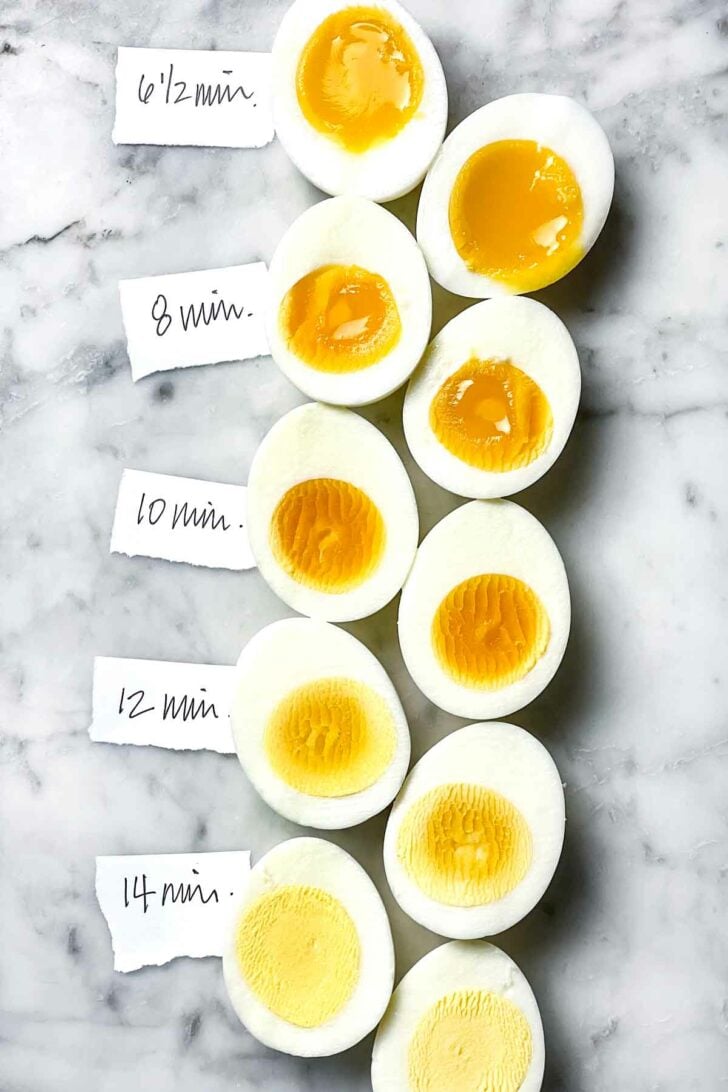
How Long Does It Take to Hard-Boil an Egg?
Use this guide to base your own hard-boiled eggs cooking time. Time may vary depending on your stove. I used large eggs straight from the fridge cooked at a rolling boil.
How long you should boil hard-boiled eggs:
- 6 ½ minutes = firm egg whites with jammy centers, perfect for ramen noodles
- 8 minutes = jammy centers ringed with firm yellow yolks
- 10 minutes = eggs with more solidified centers
- 12-14 minutes = hard-boiled eggs with creamy centers just right for egg salad sandwiches and deviled eggs
Are Old or Fresh Eggs Best for Hard-Boiled Eggs?
There’s been much debate on whether it’s best to use old eggs or new eggs to get hard-boiled eggs that peel cleanly. The latest reports I’ve seen go both ways. Some say old eggs are the only way to go while others suggest avoiding old eggs for several reasons listed here.
Given the eggs we find in stores could have easily been waiting for weeks to hit the shelves anyway, I just go with what I have and don’t worry about it too much.
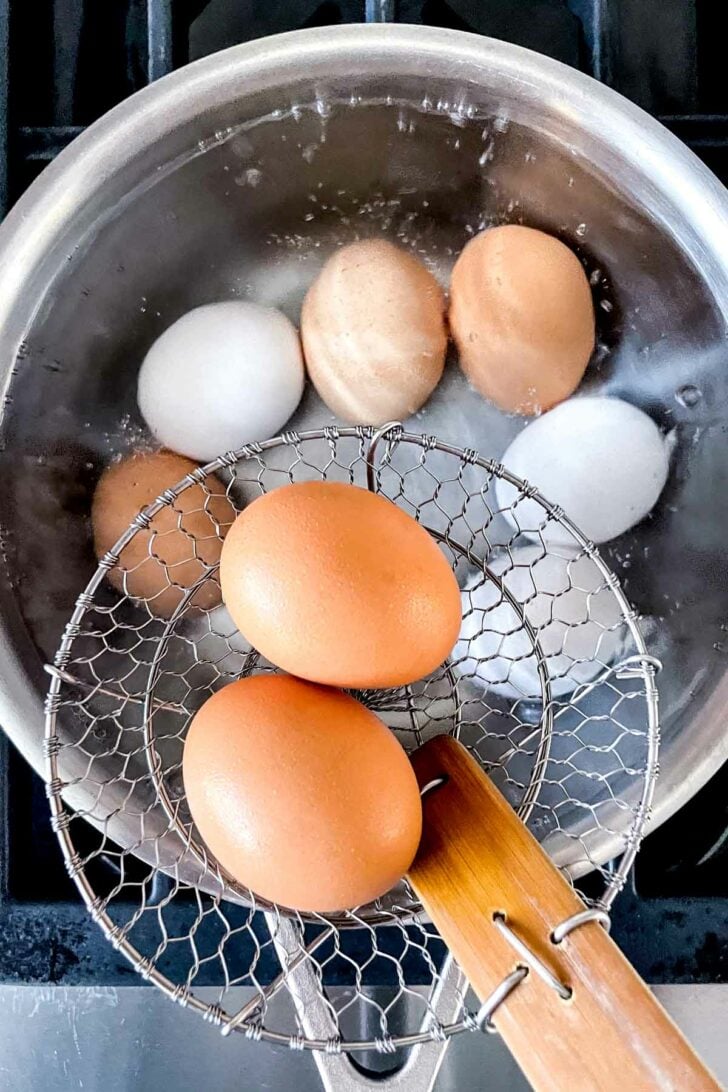
How to Cook Hard-Boiled Eggs On the Stove Top
Use cold eggs straight from the refrigerator. I use cold eggs straight from the fridge as a baseline so my cooking times are consistent every time.
Add eggs after the water boils. Use a spider strainer or slotted spoon to gently drop the eggs in a single layer into boiling water. Cover the eggs with the hot water by at least 1 inch. With this method, the proteins shrink and the egg lining immediately pulls away from the inside of the shell so it’s easier to peel later. Starting the eggs out in cold water causes the egg proteins to adhere to the shell, and harder to peel.
Cook the eggs uncovered on high heat and set to a rolling boil. Set the timer for your desired doneness listed above. There’s no need for a lid.
Immediately plunge the cooked eggs into a large bowl of ice water. An ice-water bath stops the eggs from cooking and makes them easier to peel. Chill the eggs in the ice bath for about 5 minutes before peeling.
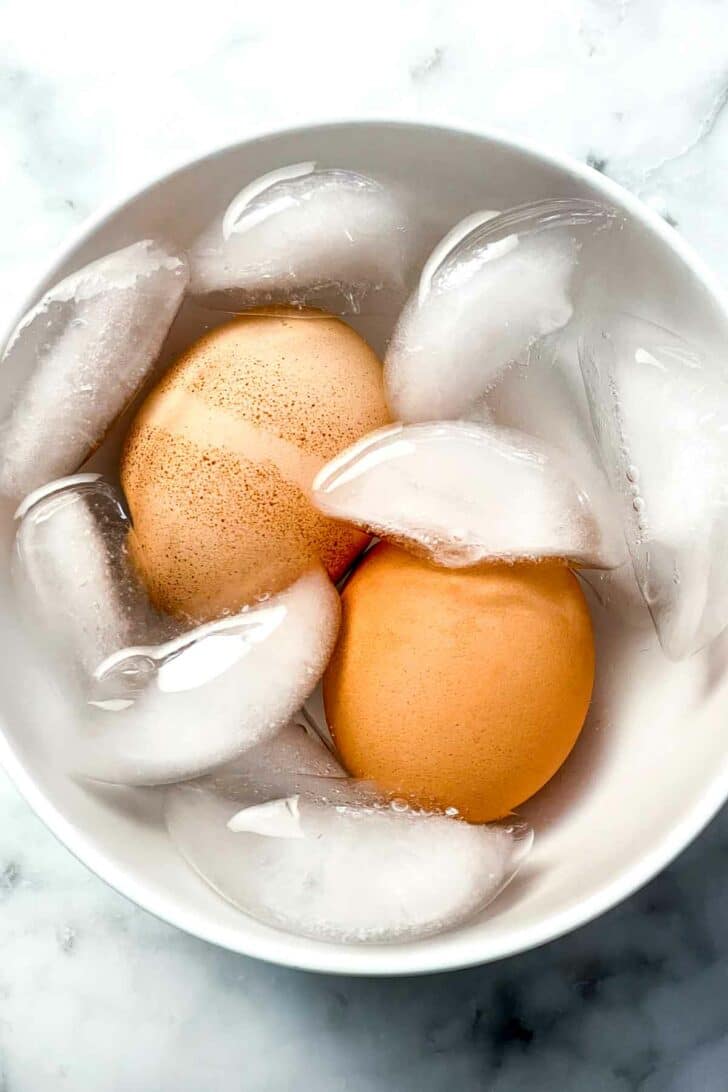
How to Steam Hard-Boiled Eggs on the Stove
Instead of boiling the traditional way, steam up to a dozen eggs in a steamer basket suspended over a pot filled with 1 inch of boiling water for 15 to 16 minutes. Similar to cooking them in the Instant Pot, the shells slip right off.
How to Cook Hard-Boiled Eggs in the Instant Pot
Similar to steaming, a pressure cooker creates an egg where the shells separate easily from the egg.
Follow the 5-5-5 rule to cook hard-boiled eggs in the Instant Pot.
- Place 5 eggs on a metal or rubber rack in the basket of the instant pot.
- Set to HIGH for 5 minutes
- NATURAL RELEASE for 5 minutes

The Easiest Way to Peel an Egg
- Chill the eggs in an ice bath for about 5 minutes.
- Remove the egg from the ice bath and gently tap the bottom of the egg on a hard, flat surface, like a cutting board or countertop.
- Continue tapping while rotating to the top of the egg then gently tap all the way around the circumference.
- Gently cover the egg with the palm of your hand and lightly roll the egg.
- Under running water or in a bowl or pot filled with water, slowly begin peeling at the bottom of the egg where an air pocket should have formed during cooking. The water helps the peeling process move along stealthily.
Does Vinegar or Baking Soda Tricks for Easy Peel Boiled Eggs Really Work?
In the pursuit of the best easy-peel eggs, lore swirls about how adding baking soda, vinegar, or salt to the boiling water makes hard-boiled eggs a snap to peel. Science hasn’t proved it to be true and because I get a killer peel without adding anything extra, I skip the extra ingredients. But if your mama says you should, then by all means do, it won’t hurt a thing.
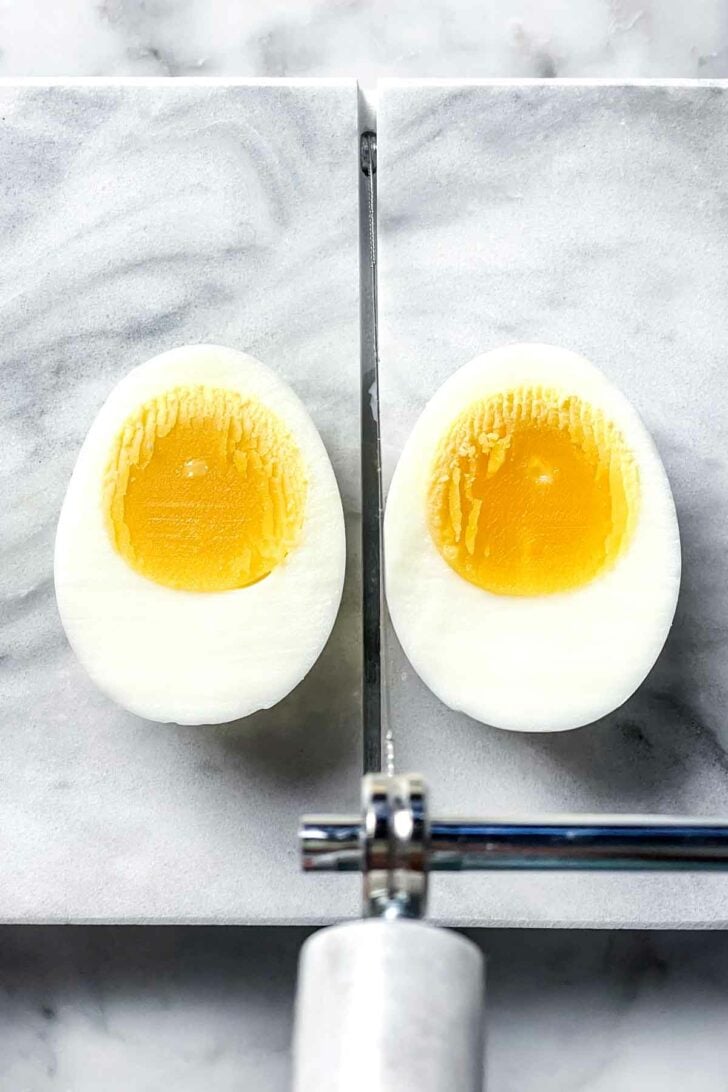
How to Perfectly Slice a Hard-Boiled Egg
Sharp knives and even fishing line or dental floss are common remedies for getting a clean-cut egg. But my favorite gadget for the cleanest cut egg is a cheese slicer with wire. It’s so slick and quick and always comes out clean.
When making egg salad sandwiches or macaroni salad, this is my favorite egg slicer that does double duty for strawberries.
